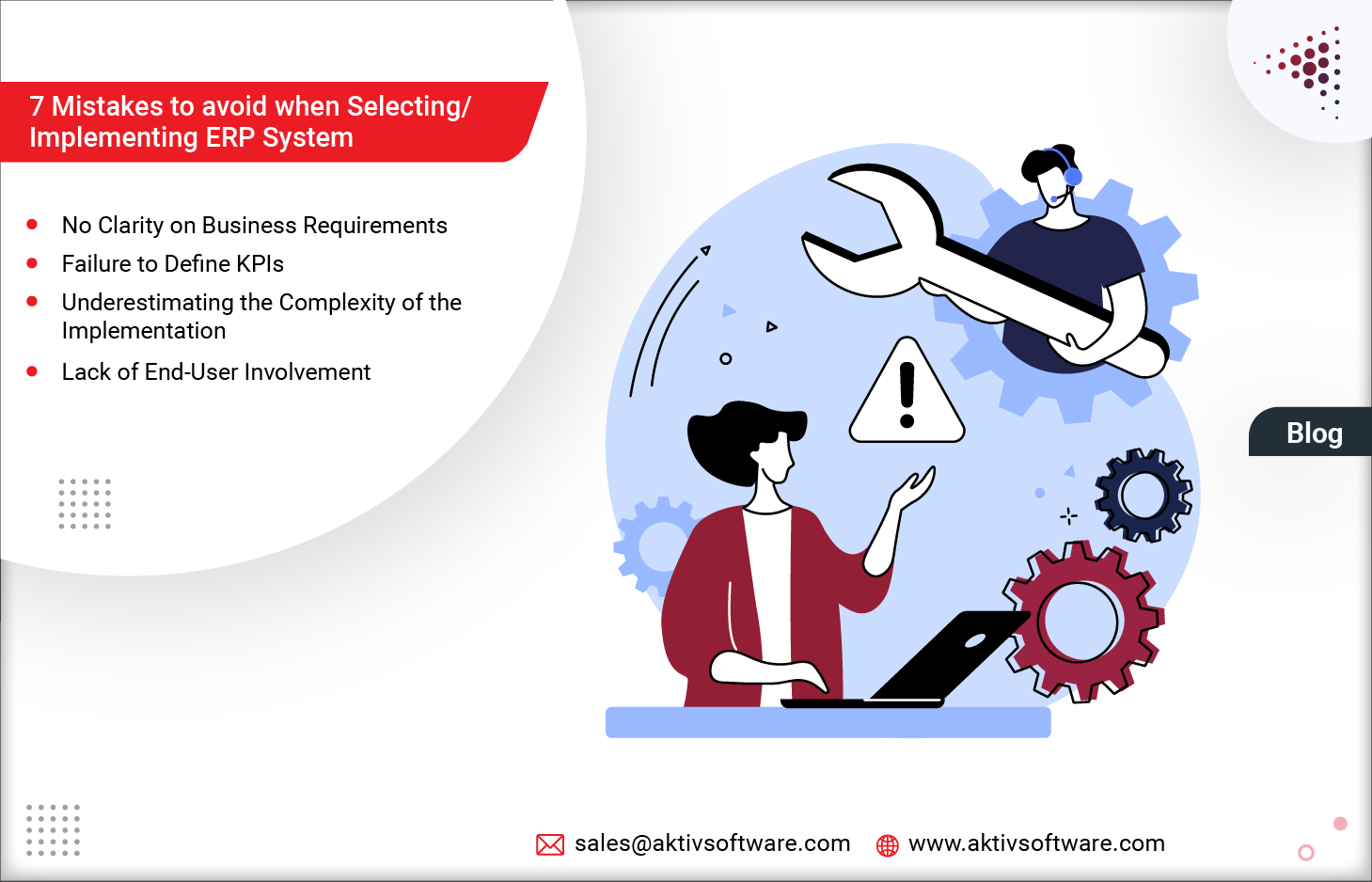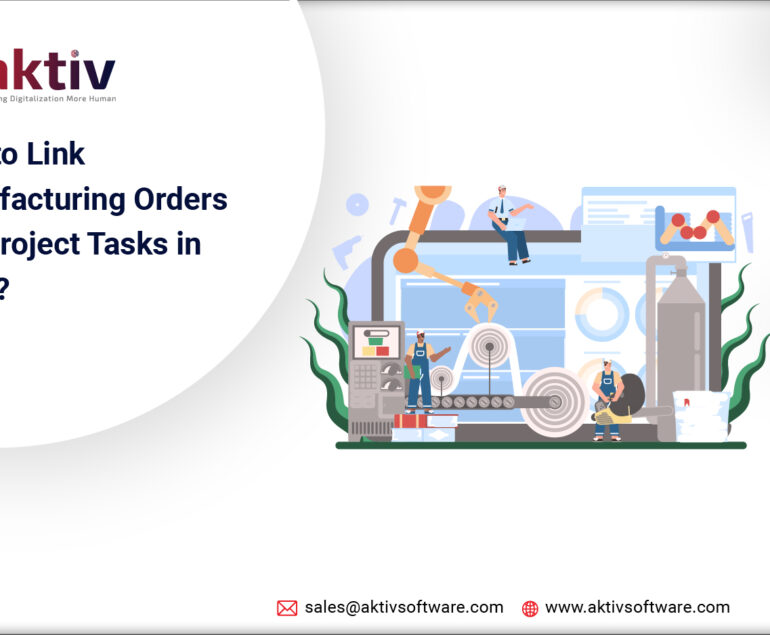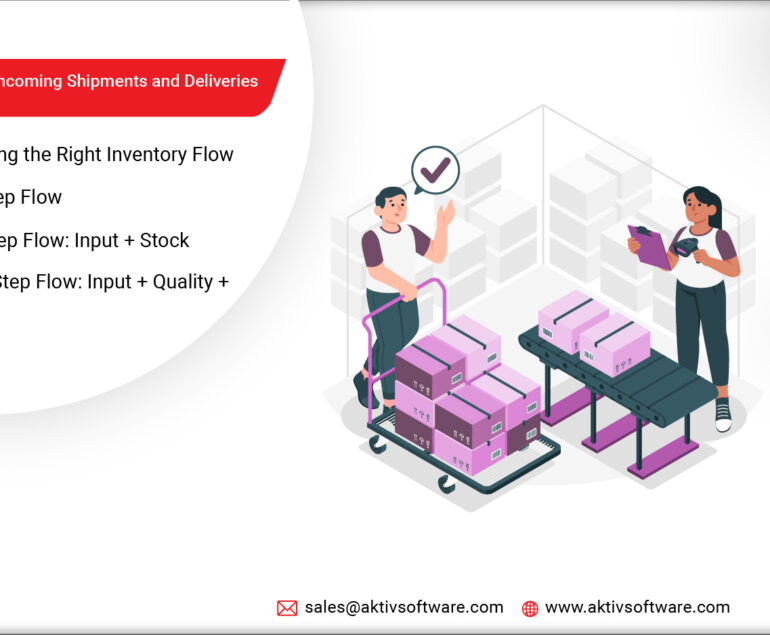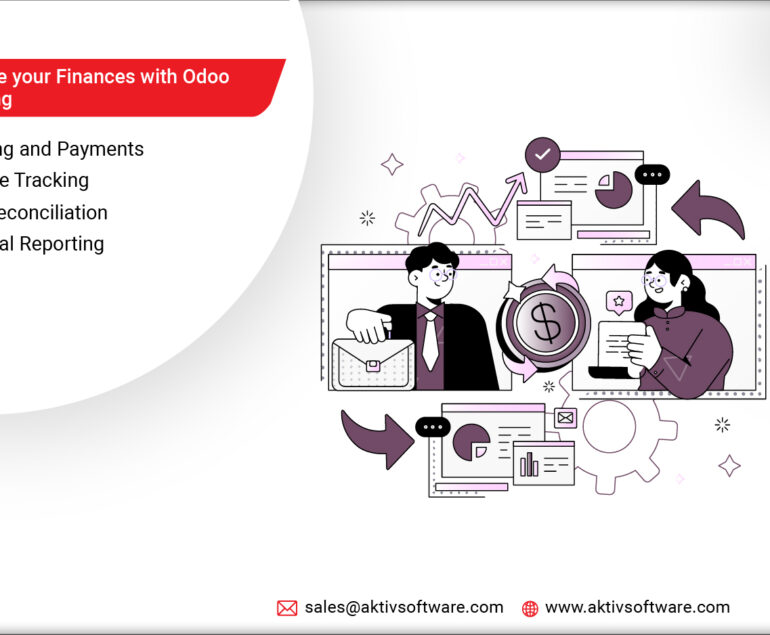ERP Implementation is a significant undertaking for any organization.
An ERP system can help streamline operations, increase efficiency, and improve productivity. And a meticulous and thorough plan goes a long way in a successful implementation.
However, selecting and implementing an ERP system can also be a daunting and complex process. In this blog, we will discuss seven common mistakes to avoid before you start the Implementation process.
1. Lack of Clarity on Business Requirements
Before selecting an ERP system, it is essential to have clarity and an understanding of your organization’s needs and objectives. This includes identifying the features and functionality required to support your business processes.
To avoid this, organizations should conduct a thorough analysis to identify their specific requirements, which should involve all stakeholders, including management, end-users, and IT. By conducting a comprehensive analysis, organizations can ensure that they select an ERP system that aligns with their business requirements.
2. Failure to Define Key Performance Indicators (KPIs)
Another common failure seen in the ERP Implementation process is defining key performance indicators (KPIs) for the ERP system. KPIs are measurable goals that help organizations track progress towards their objectives. Without well-defined KPIs, it can be difficult to determine the success of the ERP system.
To avoid this, organizations should identify and define their KPIs before implementation. KPIs should be specific, measurable, achievable, relevant, and time-bound (SMART). By defining KPIs, organizations can monitor their progress and make adjustments as necessary.
3. Underestimating the Complexity of the ERP Implementation Process
Organizations often underestimate the amount of time and resources required to implement the system successfully. This can lead to delays, cost overruns, and frustration among stakeholders. One can avoid, it by allocating sufficient time and resources to the implementation process.
This includes dedicating a project team, developing a detailed project plan, and establishing a realistic timeline. It is also essential to communicate regularly with stakeholders and provide regular updates on the progress of the implementation.
4. Ignoring Data Migration and Integration Risks
Data migration and integration failure can lead to data loss, duplication, and inconsistency. It can also lead to delays and increased costs.
Organizations should develop a comprehensive data migration and integration strategy to avoid this pitfall before implementing the ERP system. This includes identifying the data that needs to be migrated, establishing a data mapping process, and developing a plan for testing and verifying the accuracy.
5. Lack of End-User Involvement
One of the largest obstacles in the way of deploying a new ERP system can be organizational opposition. End-users are the individuals who will be using the system on a day-to-day basis.
It is doubtful that a change will be accepted and implemented into management and employees’ regular working procedures if the benefits of a new system are not fully and enthusiastically communicated. Without their input and buy-in, achieving user adoption and realizing the full benefits of the ERP system can be challenging.
Organizations should involve end-users throughout the selection and implementation process, including soliciting feedback on system requirements, involving end-users in testing and training, and providing ongoing support and training once the system is implemented.
How to empower employees to adapt to Odoo?
6. Failure to Consider Scalability and Flexibility
ERP systems are designed to support business growth and change. However, not all ERP systems are created equal when it comes to scalability and flexibility.
Failure to consider these factors can lead to a system that is not able to grow and adapt to the organization. To avoid this pitfall, organizations should consider the scalability and flexibility of the ERP system during the selection process.
This includes evaluating the system’s ability to accommodate changes in business processes, as well as its ability to integrate with other systems and applications.
7. Overlooking Maintenance and Updates
Software systems undergo frequent updates, so it’s critical to look at the most current and thorough information about feature support levels in the products you’re researching to determine which systems best fit your organization’s needs.
It’s crucial to routinely assess how an ERP system assists corporate operations once it’s in place. Whether they build a new warehouse or add new product specs, organizations are always changing.
To ensure security and efficiency, an ERP software solution needs to be continuously upgraded to expand with the needs of the organization. Maintaining system updates will safeguard the software’s data and keep your present procedures in place.
Conclusion
When deploying enterprise resource planning software, there are many factors to take into account. It is important to recognize the complexity and difficulties of an ERP Implementation project because it calls for careful coordination of your systems, processes, and personnel.
But with careful preparation and well-organized processes, the challenges may be overcome, and complexities can be made clear. The knowledge and competency of the ERP provider should be a major deciding factor for medium-sized businesses without in-house expertise.
At Aktiv Software, we understand that offering software (Odoo) is just one component of a complete business solution. We will assist you in realizing the benefits a cutting-edge ERP software system may provide for your company and avoid implementation issues.









